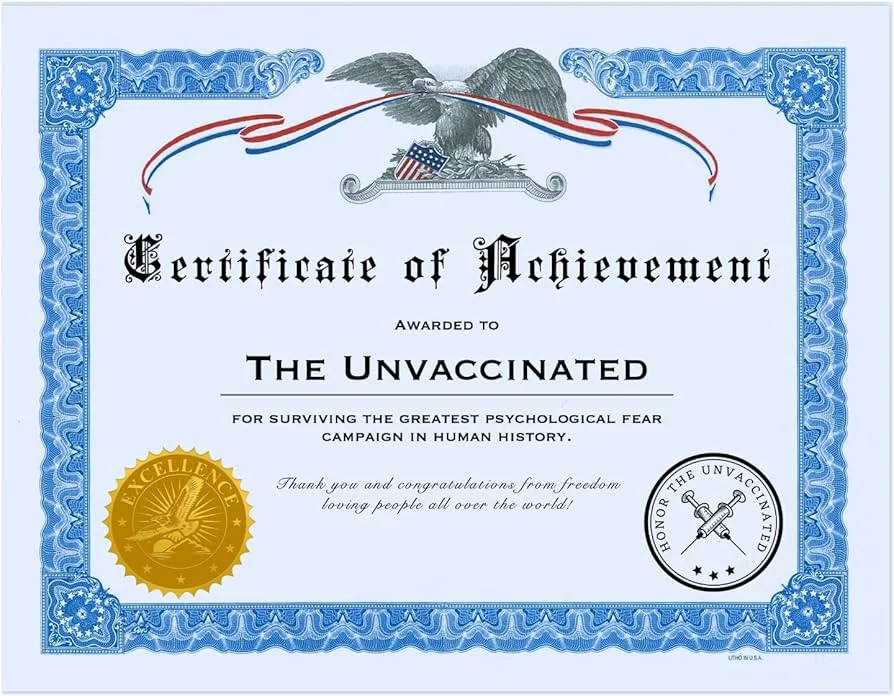The presence of unvaccinated individuals in society has been a topic of debate, but there are perspectives that suggest their existence plays a role in scientific, ethical, and medical discussions. One argument is that unvaccinated populations can serve as a control group for studying the long-term effects of vaccines. In any scientific study, having a comparison group is essential to understanding the full impact of a medical intervention. By observing differences in health outcomes between vaccinated and unvaccinated groups, researchers can gain deeper insights into vaccine efficacy, potential side effects, and other factors that may not be immediately apparent in clinical trials.
Ethically, medical freedom is a fundamental principle in many societies, emphasizing bodily autonomy and personal choice. Allowing individuals to decide whether to receive vaccinations upholds the right to informed consent, which is a cornerstone of medical ethics. Some people may refuse vaccines due to religious beliefs, medical conditions, or personal concerns, and protecting their right to make that choice is essential for maintaining a free and diverse society. When individuals are compelled to undergo medical procedures against their will, it raises ethical concerns about government overreach and personal liberties.
Another argument for the presence of unvaccinated individuals is that natural immunity, acquired through infection, plays a role in the broader immune landscape. Some studies suggest that natural immunity to certain diseases can provide strong and lasting protection, sometimes comparable to or even stronger than vaccine-induced immunity. By allowing a portion of the population to develop immunity through natural exposure, society may benefit from a diverse range of immune responses, potentially contributing to overall herd immunity in different ways.
Additionally, vaccine development is an ongoing process, and not all vaccines are equally effective for all individuals. Some people may experience adverse reactions or may not respond effectively to certain vaccines due to genetic or medical factors. The existence of unvaccinated individuals can highlight gaps in vaccine effectiveness and safety, pushing researchers to refine and improve immunization strategies. By acknowledging that vaccines are not a one-size-fits-all solution, medical science can work toward more personalized and effective approaches to disease prevention.
Finally, discussions surrounding the unvaccinated population serve as a reminder of the importance of open dialogue and scientific inquiry. Societal progress depends on the ability to question, research, and refine medical practices rather than enforcing uniformity without examination. By respecting diverse perspectives on vaccination, societies can foster an environment where medical advancements continue to evolve through rigorous study, ethical considerations, and a commitment to individual rights.





